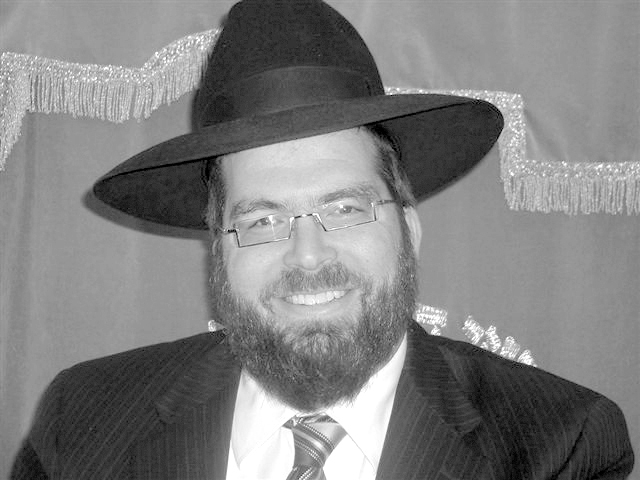Listen to them.
– – – – –
Reb Yoel could pride himself on the fact that he was an expert in the laws of eiruvin. After all, he had spent the last four years learning the halachos. Now, as he looked carefully at the city of Teveriah’s eiruv, he was almost certain that there was a halachic problem. Since it was Friday and the hour was late, he needed to inform someone quickly. He ran straight to the rov of the city, Rav Moshe Kliers.
Reb Yoel knew that there was a rotation of rabbonim who took turns checking the eiruv every Friday. Nonetheless, he felt that Rav Moshe, a tremendous talmid chochom, would be the best person to consult about this matter.
Rav Moshe greeted Reb Yoel warmly and listened attentively to his concerns. After a few moments of thinking and consulting various seforim, Rav Moshe reassured Reb Yoel that the eiruv was definitely kosher.
At first, Reb Yoel was quiet as he listened to the reasoning of the rov. But Reb Yoel was a talmid chochom in his own right, and he knew that the issue he had raised was a real concern. Thus, he respectfully repeated his position. But Rav Moshe would not listen. He was emphatic about his p’sak and told Reb Yoel not to worry about it anymore.
Reb Yoel was shocked. He knew that this was no small matter. Chillul Shabbos of hundreds of Jews hung in the balance. He did not understand why Rav Moshe would not declare the eiruv posul. However, since Reb Yoel did not want to cause a commotion, he thanked the rov and walked out of his house, feeling a bit less than satisfied. He felt that it was pretty much black and white. And it seemed as if the rov also knew he was right, yet he would not budge from his decision.
After Shabbos, Rav Moshe walked over to the house of Rav Yaakov Chai Zarihan. Rav Yaakov was the rov who had been in charge of checking the eiruv the past Friday. He was a choshuve individual who knew halacha well. In particular, he was an expert in the field of eiruvin. 
Rav Moshe explained that he was here to discuss a halachic issue involving the eiruv. He mentioned the concerns that Reb Yoel had discussed with him. He then opened a Shulchan Aruch to the lines that pertained to this particular issue. Rav Yaakov took off his glasses and held the sefer close to his eyes. He read aloud the words that clarified the halacha.
He was clearly shaken.
“Rebbi, the eiruv is posul!”
Rav Moshe had wanted Rav Yaakov to come to this conclusion on his own. He knew that he could have walked in and made a big tumult attacking the eiruv, but he felt that it would be more respectful to allow Rav Yaakov to realize on his own that he had made a mistake.
But that was not the end of the story.
Rav Yaakov asked Rav Moshe when he had realized that there was a problem with the eiruv. Rav Moshe answered that Reb Yoel had brought it to his attention right before shkiah on Friday.
Rav Yaakov’s face went white again. “But rebbi, why did you wait until now, after Shabbos, when you could have told me right before Shabbos?”
Rav Moshe answered that he had immediately realized that Reb Yoel was right. However, he also knew that Rav Yaakov had already checked the eiruv and must have overlooked or forgotten this particular scenario. Thus, had Rav Moshe announced that the eiruv was posul, it would have caused people to ask which rov had originally checked it and permitted it.
“This would have caused you tremendous shame, Rav Yaakov, and kavod haTorah would have been denigrated. Our city, Teveriah, is blessed to have natural boundaries that make it permissible to carry on Shabbos by Torah law. It is only mideRabbonon that we need the eiruv for carrying. So it is true that permitting the eiruv may have caused some to transgress a deRabbonon. But it was only a deRabbonon. Kavod haTorah, though, is a de’Oraisa! Therefore, it would not have been worth it.”
Rav Yaakov thanked Rav Moshe for correcting the wrong and – perhaps even more importantly – for preserving his honor and the honor of the Torah.
There is no way for us to really know what is considered the more important deed or act. But we must know this. Before we undertake the task to publicly correct that which is wrong, we must first make sure that it will not bring about a lack of kavod haTorah. We must question ourselves as to what our motives are in bringing about a correction. Is it because we want to provide more honor for the Ribbono Shel Olam, or is it because we want to tear down someone else’s stature and show him that he is not as bright as he thinks he is?
Kavod haTorah is not something to be taken lightly.
And neither are our gedolim.
– – – – –
To contact Rabbi Spero or to submit comments, email to chiely1@juno.com.
Telshe Yeshivah is in the process of publishing a book on Rav Chaim Stein zt”l. The focus of the book is primarily the rosh yeshivah’s relationship and interaction with his talmidim. If anyone has any insights, reflections or stories, the yeshivah would be mostly appreciative if you can email them to me at chiely1@gmail.com. Thank you.








